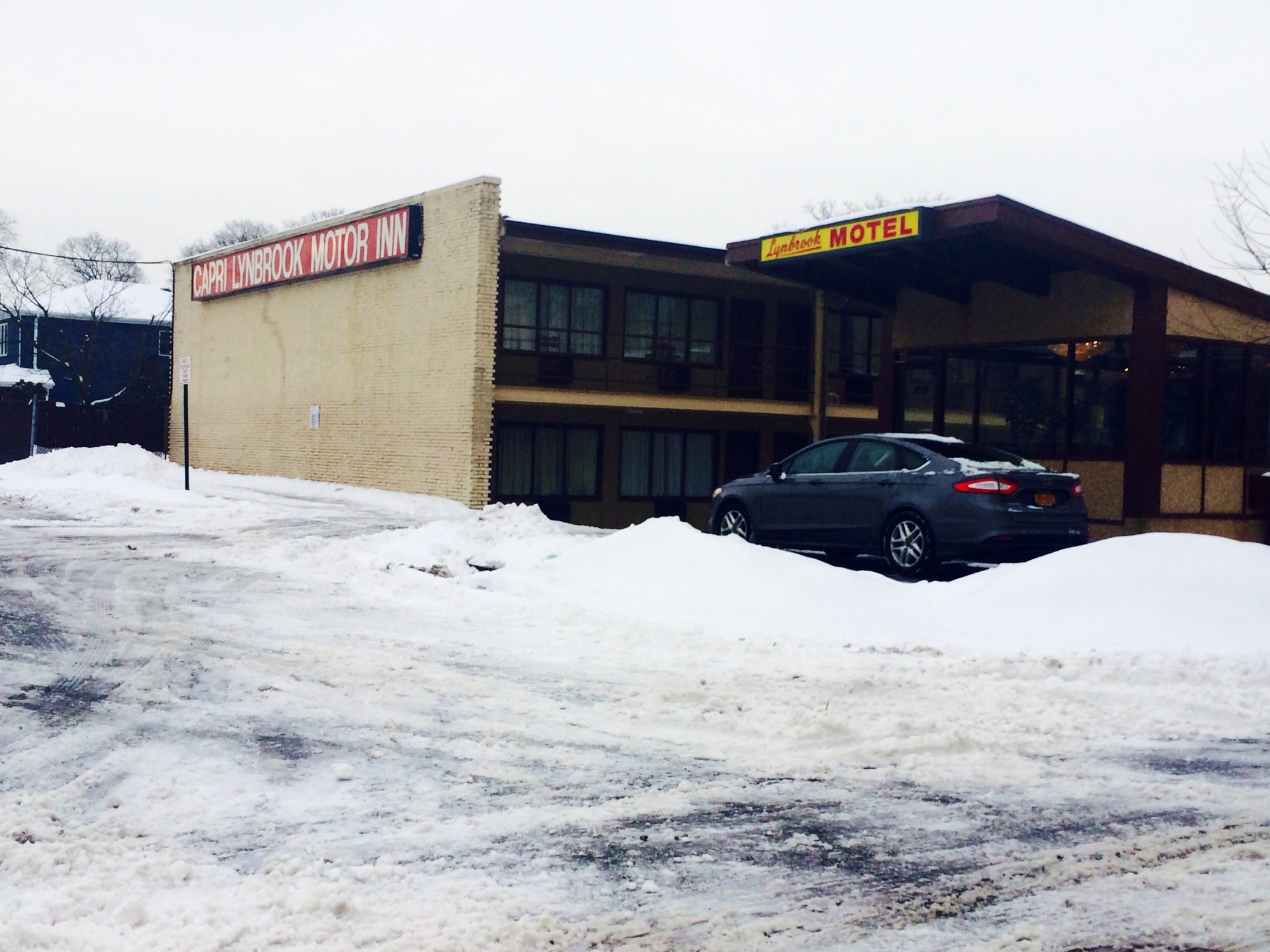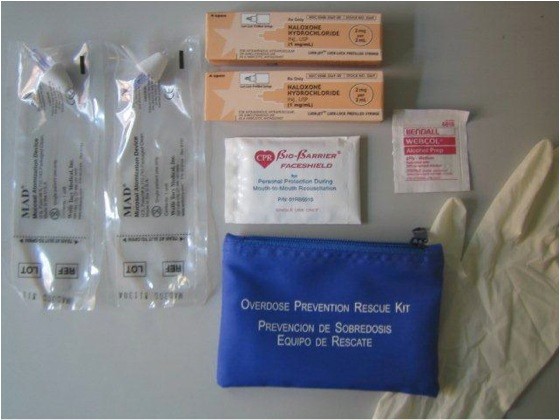Combating a local heroin epidemic
Overdose calims fourth life in Lynbrook since January; Police take measures
Last weekend, heroin took the life of someone in the Village of Lynbrook for the fourth time in 2015 when a 50-year-old man died of an overdose inside the Capri Motor Inn on Freer Street.
“Heroin has emerged as the leader of recreational drug use due to its cheap price,” said Joe Neve, chief of the Lynbrook Police Department. “It is very affordable. It is important for the public to learn and recognize the signs and symptoms of illicit drug use. Parents need to be vigilant in the observation and supervision of the children to recognize drug use and get early intervention for their child. Parents should also reinforce to their children to not concede to peer pressure to use a drug.”
Two more overdose deaths occurred in Lynbrook in February. On the 16th, a 19-year old male overdosed and died in his home, and on Feb. 1 a 25-year-old woman did the same at Xtreme Service Laundromat on Merrick Road. One more happened on Jan. 18, when a 33 year-old woman died of an overdose.
While Neve said that it’s too early to determine if there is indeed any rise in overdose deaths this year, he also stressed that the LPD were already working hard to combat the drug.
“The Lynbrook Police Department has made it a number one priority to do whatever is possible to prevent overdose deaths by strict enforcement of the laws pertaining to the sale and possession of illicit drugs and by engaging in drug prevention programs,” he explained, citing the village’s arrests in 2014, including 41 arrests for the sale or possession of narcotics, 33 arrests for possession of substances like heroin, cocaine, oxycodone and valium, and eight arrests for the sale of heroin, cocaine or oxycodone. “Members of the Police Department have been extremely active in the enforcement of the [illegality of the] sale and possession of controlled substances in Lynbrook.” He also pointed out that much of the department’s efforts to combat drug use and addiction in the village centers not on crime and punishment, but on education and rehabilitation.
“The intent of the arrests for the possession of the drugs is to get drug users court ordered drug rehabilitation,” Neve said. “Understanding that abusing prescription drugs often leads to the use of other drugs such as heroin, the police department engages in drug prevention programs such as the Drug Reclamation Program.
The LPD conducted three drug reclamation events in 2014. This program encourages people with unneeded prescription drugs to bring them to the event and properly dispose of them to the police department. Two events were held at Greis Park and one at the Lynbrook High School in conjunction with the Students Against Destructive Decisions. The LPD is currently considering installing a secure drop box in the lobby of Police Headquarters for persons to dispose of unneeded prescription drugs 24 hours a day seven days a week.“
A countywide problem
Neve said his department recognizes the fact that heroin abuse is acute throughout the country, including Nassau County — and the numbers back up that fact.
At least 87 people died in Nassau County from opioid overdoses since the beginning of 2014, and police and EMTs in the county have responded to more than 370 non-fatal overdoses in the same time period. 12 overdose deaths were recorded in East Rockaway between January 2012 to June 2014, the fourth highest rate among Nassau communities during that time period.
Eden Laikin, head of the Nassau County Heroin Prevention Task Force and the Nassau County Prescription Drug Abuse Prevention Task Force, said the county recognizes the problem as well.
“The number of heroin deaths in Nassau County have steadily grown, going from 32 in 2011; to 38 in 2012; to 44 in 2013; and 51 in 2014,” she said. “Admission to treatment programs in Nassau, for Heroin addiction, rose 6.9 percent from 2013 to 2014.”
The village has joined in some of the county’s efforts to stem the tide of drugs in Nassau County. An officer is assigned to the Nassau County District Attorney’s Drug Task Force, and all officers were trained in the use of Narcan, an opioid overdose reversal agent.
“The Department instituted a program and trained its officers on the use of Narcan,” he said. “Narcan is an Opioid Antagonist with negates the effects of an opioid drug, such as heroin. All police officers carry this drug and it has been used successfully on three overdose victims since July of 2014. That’s three lives that probably would have died if they did not receive the life saving drug by the police officer.”
Doug King, who, along with partner John Stawinski, saved those three overdose victims in July said Narcan kit is a key resource for officers responding to an overdose.
“It’s pretty easy to use,” he said. “The county gave us some really good training and showed us how to use it. It’s a syringe with a foam tip. You spray half up one nostril, half up the other.”
A community effort
The police department is not the only organization fighting to stop the spread of heroin and other illegal substances throughout Lynbrook. The Lynbrook Anti Drug Task Coalition was formed by Joe and Jo Lucchese earlier this year, two parents concerned about the drug’s effect on the village’s residents and their children.
“This isn’t about patting ourselves on the back,” said Joe Lucchese. “There is no agenda, no political aspirations here. This is about doing our part to keep the community a drug- and alcohol-free community.”
At the groups inaugural meeting in January, the group stressed the importance of involvement from all aspects of the community.
“There’s no doubt that getting the message out to parents in the community really is crucial,” Cathy Stradowski, a PTA representative on the Coalition said. “They’re the ones that watch their children more than anyone else, and kids pick up so much from their parents without parents ever realizing. For their own sake and the sake of their kids, we really need to ensure that our parents are educated, and know the truth about things like this.”
As a result, the group plans to survey Lynbrook residents to gather more information on how prevalent heroin use, and the ignorance of its effects, is in Lynbrook.
“We still don’t entirely know what we’re fighting against,” Lucchese said. “We still need to find out exactly what we need to address. We plan on surveying members of our community — parents, teachers, residents — and finding out what they do know, what they don’t, and what they need help with. After that, we’ll have a better idea of how to best direct our attention.”
Lucchese also said that he welcomes the efforts of those with talents or services that might benefit the coalition. “We’re open to listening to ideas from anyone that provides services with drug and alcohol abuse that think they can help us attack the problem,”

 49.0°,
Fair
49.0°,
Fair 







